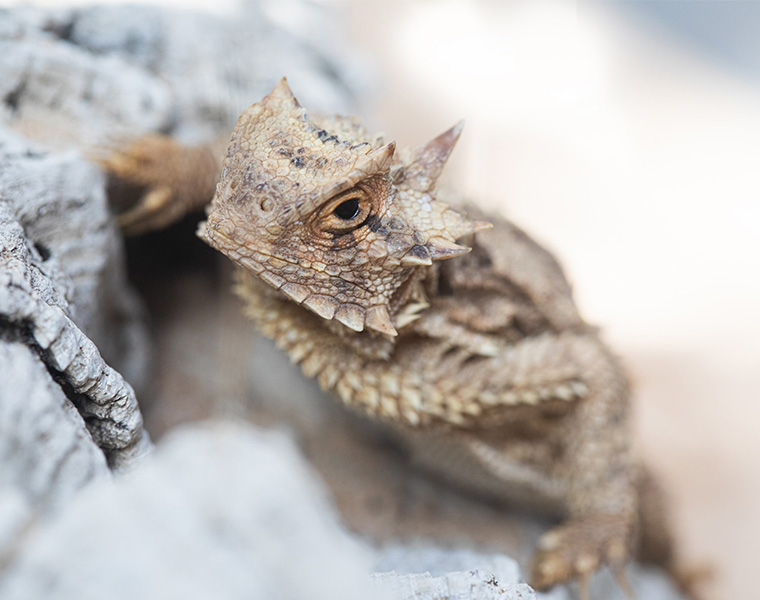CSE faculty and students traveled to Pittsburgh in November to present in the North American meeting of the Society of Environmental Toxicology and Chemistry (SETAC), with two works receiving awards.
Maddy Hannappel (Biology MS '19) was awarded first place in Ph.D. student oral presentation for her work titled “Seasonality of insect-mediated mercury flux out of human-made ponds.” When asked about her research, Hannappel explained, “During my master’s at TCU, we started a very large field study on Hg contamination of food webs in and around human-made ponds in North Texas at the LBJ National Grasslands. This study looks at the Hg in aquatic organisms in the ponds and the movement of Hg out of the ponds, via emergent aquatic insects (e.g., dragonflies and mosquitoes) to the terrestrial food web, specifically spiders.”
Her findings were the first of their kind, and she expressed her gratitude towards the CSE faculty. “I would like to emphasize that I have greatly benefited from the mentorship of many TCU faculty members, including when I was a TCU undergraduate and master's student and still receive support to this day. Specifically, my advisors Dr. Matt Chumchal and Dr. Ray Drenner, with whom I have worked since around 2015 as an undergraduate working on an honors thesis in their lab,” Hannappel said.
Dalton Allen (Biology Ph.D. ’24) was awarded third place in Ph.D. student oral presentation for his talk titled “Can tests with fish embryos or shrimp replace larval fish tests? An initial evaluation of marine alternatives.” The presentation culminated his aim to develop toxicity tests that protect both human and environmental health without damaging the experimental organism. His findings support invertebrates as a replacement for fish larvae in toxicity tests. Allen presented on a related subject matter as well, “Marine Effluent Toxicity Testing: Evaluation of alternative testing methods for assessing metal toxicity.” He said, “I am grateful for having had the opportunity to attend the forum as it enabled me to share and exchange ideas with peers, see the current state of research in my field, and explore potential avenues for when I complete my work here at TCU. Overall, it was a fantastic experience, and I am looking forward to future opportunities to share my research.”
CSE faculty also participated at the SETAC event. Professor of biology Matt Chumchal presented two posters, “Use of Riparian Spiders as Sentinels of Persistent and Bioavailable Chemical Contaminants in Aquatic Ecosystems” and “Effects of Taxa and Body Size on HG Contamination of Riparian Spiders: Implications for the Use of Spiders and Sentinels,” both of which explored the role of Riparian spiders in aquatic ecosystems to reveal mercury levels.
Dr. Marlo Jeffries, Biology Department Chair, co-chaired a session on “Advancements in Aquatic and Wildlife Immunotoxicology: Innovative Approaches to Identifying Adverse Outcomes'' and presented a work entitled “Development of a New Infection Model for Fathead Minnows, an Emerging Immunotoxicity Model Organism.” Her findings can be used to aid development of standardized assays for detecting chemicals that may alter immune system functions.
CSE’s involvement in SETAC was influential in the environmental and chemical space, as well as significant to the growth of the mentorship displayed in the College. Hannappel said, “My experiences with the teachers and mentors at TCU are what inspired me to pursue research starting with a master’s in biology at TCU to a Ph.D. at UNT, and I expect will stay with me for the rest of my life. I hope someday to provide similar mentorship to someone else.”
Jeffries said, “These awards are not only a testament to the quality of the research that Dalton and Maddy are engaged in here at TCU, but also to their ability to share complex scientific information in an effective and engaging fashion. As part of our graduate student curriculum, we strive to provide opportunities for students to practice and enhance their scientific communication skills, so it is extremely gratifying to have our students recognized in this capacity. It is also very exciting to see TCU making a splash in the field of environmental toxicology!”
Learn more about TCU’s Department of Biology.





